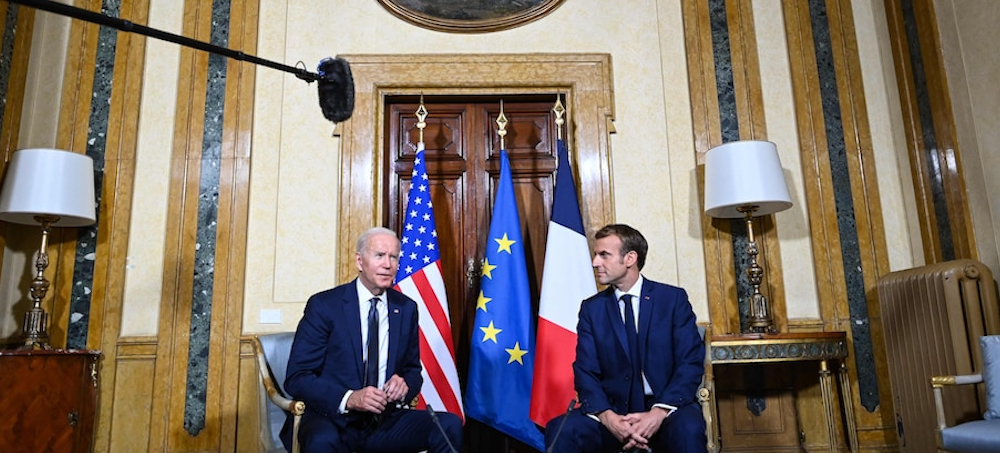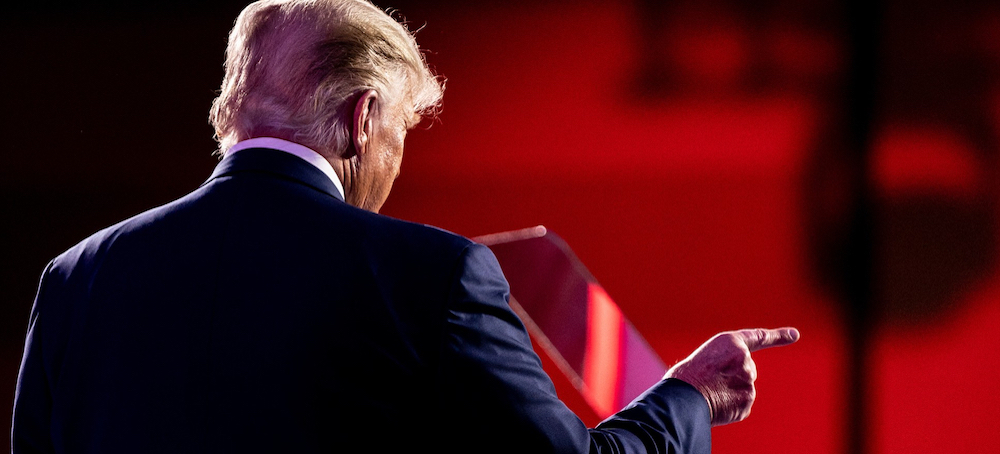
30 October 21
Live on the homepage now!
Reader Supported News
WE’RE NOT GOING AWAY — We have no intention of backing down on this organization’s mission. As long as the problems are still here we will be here. We need a budget, unpleasant though that may be. We will meet that challenge too. / Marc Ash, Founder Reader Supported News
Marc Ash • Founder, Reader Supported News
Sure, I'll make a donation!

Garrison Keillor | A Day in the Life of an American Man
Garrison Keillor, Garrison Keillor's Website
Keillor writes: "Being almost eighty, as I am, is a source of constant amazement and I would not trade it for the drudgery of being forty or fifty or the sheer stupidity of my twenties."
Being almost eighty, as I am, is a source of constant amazement and I would not trade it for the drudgery of being forty or fifty or the sheer stupidity of my twenties. I am starting to get a grip on things. I love home because I know how the shower works but I’m not attached to material things except two, both electronic. I no longer know who famous people are, especially TV stars and pop singers and contemporary authors, and I’m okay with that. I accept that males have become fringe figures with no particular authority in everyday life.
I was amazed to hear a man shout “Taxi!” the other day just as men used to do in the movies, especially big execs and private eyes. It was in New York, at Broadway and 64th, across from Lincoln Center, about 7 p.m. and the man’s cry was full-volume and the cab hit its brakes and stopped. Men in real life gave up that tone of voice some time ago when we took up cool irony and learned to say, “If you happen to hear me, maybe you could give me a lift,” which is a line that can’t be shouted.
I remember, on a movie set, the assistant director saying, “Lights. Camera. Action!” and later “Cut!” and I remember my Uncle Jim getting horses to pull the haywagon with a “Hyuh” and then, of course, a “Whoa!” to stop and I remember train conductors shouting “Board” and making a two-syllable word of it. Now I love to watch baseball so I can see the home plate ump do that dramatic ripping motion for a called third strike, “Steeeee-rike!” I wish I had an authoritative moment or two in my life and the plain fact is that I don’t.
My wife does. She says, “Don’t put your coffee cup down on the table. Use a coaster.” She says, “Turn on the light when you get up to pee at night.” She says, “You’ve been sitting at that computer all day, you need to go out for a walk.” I have no commandments whatsoever. I am Moses with two blank tablets.
She went up to Boston last week and for excitement I went to a clothing store and looked at suits without her there to tell me which one looked good, but there was a saleswoman who saw that I was helpless and she showed me a number of ugly suits, dark plaids and patterns, clothing I’d associate with used condo salesmen or content providers, whereas I am an American author, but I could not bring myself to say, “No,” all I could say was “I don’t know, maybe not.” I was hesitant to take issue with her. Let’s just say it in simple English: I’m scared of women. She touched me once on the arm in a friendly way, and then she did it again. I would no more touch her arm than I’d play with a loaded pistol.
I finally settled on a suit, navy blue — how can you go wrong with navy blue? — but it’s still at the store, getting alterations, so my wife hasn’t seen it, and she’ll leave for Florida the day before I pick it up, and I’ll go on tour for a couple weeks and do shows in front of audiences that include women who’ll look at me and think, “How could his wife let him go out in public in a suit like that?” I can sense the critical glance of women, even in a darkened theater. I don’t care if I offend men — I consider that a badge of honor — but the disapproval of women has always made me shrivel. My aunt Eleanor and aunt Elsie approved of me and on the strength of their approval and that of my teachers LaVona Person and Helen Story, I ventured into the field of literature. In 1985, a woman named Veronica Geng gave me a four-star front-page salute in the New York Times Sunday Book Review and the book became a bestseller. My wife and daughter both think highly of me, as do several womanly pals and my cousin Elizabeth and a few nieces. This is all a man needs to stay afloat.
But I can’t forget the guy who yelled “Taxi!” and the taxi stopped. I’ve been using Uber but I am practicing yelling “Tax-EEE” with the emphasis on the EEE, which is the sound that carries on a busy street, and if I can make a cab stop, I’ll be happy, even more so if the driver is a woman.
READ MORE
 French president Emmanuel Macron and U.S. president Biden meet at the French Embassy to the Vatican in Rome on October 29. (photo: Brendan Smialowski/AFP/Getty Images)
French president Emmanuel Macron and U.S. president Biden meet at the French Embassy to the Vatican in Rome on October 29. (photo: Brendan Smialowski/AFP/Getty Images)
Biden, Other G-20 World Leaders Formally Endorse Groundbreaking Global Corporate Minimum Tax
Jeff Stein, The Washington Post
Stein writes: "President Biden and the other national leaders gathered for the Group of 20 summit formally endorsed a new global minimum tax on Saturday, capping months of negotiations over the groundbreaking tax accord."
The new global minimum tax of 15 percent aims to reverse the decades-long decline in tax rates on corporations across the world
President Biden and the other national leaders gathered for the Group of 20 summit formally endorsed a new global minimum tax on Saturday, capping months of negotiations over the groundbreaking tax accord.
The new global minimum tax of 15 percent aims to reverse the decades-long decline in tax rates on corporations across the world, a trend experts say has deprived governments of revenue to fund social spending programs. The deal is a key achievement for Treasury Secretary Janet Yellen, who made an international floor on corporate taxes among the top priorities of her tenure and pushed forcefully for swift action on a deal.
The plan was already endorsed by the finance ministers of each country, but its official approval by the heads of state puts added pressure on the difficult task of turning what remains an aspirational agreement into distinct legislation.
Nearly 140 countries representing more than 90 percent of total global economic output have endorsed the deal, but they each must implement the new standards in a process that could take some time.
Meeting Saturday morning in Rome, each of the G-20 leaders expressed support for the global minimum tax and Biden emphasized his support for the “historic” measure, according to a senior administration official, who spoke on the condition of anonymity to reveal the discussion. Some of the world leaders participated virtually.
“Today, every G-20 head of state endorsed a historic agreement on new international tax rules, including a global minimum tax that will end the damaging race to the bottom on corporate taxation,” Yellen said in a statement Saturday. “It’s a critical moment for the U.S. and global economy.”
The minimum tax will be coupled with a broader change to global taxation intended to prevent countries and companies from undercutting the new floor. Under the pact, corporations trying to evade taxation by shifting profits to low-tax countries will face a “top-up” tax, which would require them to pay the difference between the tax haven’s tax rate and the 15 percent minimum tax rate of the companies where they are headquartered. Supporters of the deal are also optimistic companies will not, under the agreement, move to relocate their headquarters abroad, in part because so much of the world has committed to the new minimum and in part because Treasury officials have said new “enforcement provisions” will impose tax penalties based in countries refusing to join the deal.
The United States already has a version of its own global minimum tax, created as part of the 2017 GOP tax act, that imposes a 10.5 percent minimum tax on U.S. multinational firms’ foreign earnings. The Biden administration initially proposed raising that amount to 21 percent as a demonstration of America’s commitment to higher corporate taxes, but after negotiations with congressional Democrats, have instead proposed a 15 percent rate in line with the global agreement. (This 15 percent tax on U.S. multinationals’ foreign profits is separate from the 15 percent minimum tax Biden is also seeking to impose on large firms in the United States.)
“There’s going to be a lot of opportunity for enforcement to make it difficult, especially if there’s more international cooperation,” Itai Grinberg, deputy assistant treasury secretary, said in a blog post last month.
But the deal includes not just these changes but a separate — and arguably more controversial — overhaul of how multinationals are taxed when earning profits in countries where they have no physical presence. That related but distinct tax deal is intended primarily to address anger in Europe over the U.S.-based tech giants that pay little in taxes in European countries despite earning substantial sums there. Several European leaders have said they see the measures as tied together.
Republicans have slammed both parts of the plan as fanciful thinking by an administration sacrificing part of the U.S. tax base to European rivals largely to secure a symbolic victory. Skeptics also note that key details in the plan, particularly pertaining to the part of the tax agreement related to taxing multinational tech firms, remain unresolved and that leaders could confront disagreements when bringing the plan to fruition.
“The Europeans have no particular interest in the global minimum tax, and will in subtle ways gut it so it’s effectively far less than 15 percent,” said Douglas Holtz-Eakin, a Republican policy analyst. “The deal was: ‘We’ll give you some more tax base, and in exchange you’ll raise taxes on yourself.’ But I wonder if we’ll get that deal in practice.”
Other critics contend that the plan could in fact punish some of the poorest countries, by shifting the base of taxation from where production occurs to corporate headquarters more often located in rich nations. Nigeria and other African countries, along with Pakistan and a handful of others, have balked at the agreement.
“The production occurs in the developing world,” said Joseph Stiglitz, an economist at Columbia University. “The fact they decided to give the tax to the advanced countries just shows the lack of empathy for the developing countries.”
Still, Yellen has been adamant that something has to be done to prevent corporations from playing countries off each other to push corporate tax rates lower and lower. The average corporate tax rate globally has fallen from about 40 percent in 1980 to roughly 23 percent in 2020, according to the Tax Foundation.
In 2017, roughly 40 percent of profits earned by the world’s multinational firms — or more than $700 billion — was stashed in tax havens.
The new minimum tax rate only applies to firms with more than $850 million in annual revenue and is expected to raise roughly $150 billion in additional global tax revenue every year, according to the Organization for Economic Cooperation and Development, which brokered the agreement.
READ MORE
 U.S. soldiers in Afghanistan. (photo: WSJ)
U.S. soldiers in Afghanistan. (photo: WSJ)
"The Spoils of War": How Profits Define Success for Pentagon
Jon Schwarz, The Intercept
Schwarz writes: "In the introduction to 'The Spoils of War,' an extraordinary new book by Andrew Cockburn, he makes a straightforward assertion about the U.S. military. 'War-fighting efficiency has a low priority,' he writes, 'by comparison with considerations of personal and internal bureaucracies. ... The military are generally not interested in war, save as a means to budget enhancement.'"
Andrew Cockburn’s new book is an incredible compendium of avarice and folly.
In the introduction to “The Spoils of War,” an extraordinary new book by Andrew Cockburn, he makes a straightforward assertion about the U.S. military. “War-fighting efficiency has a low priority,” he writes, “by comparison with considerations of personal and internal bureaucracies. … The military are generally not interested in war, save as a means to budget enhancement.”
This is not a popular perspective in Washington, D.C., to say the least. It’s of course legal for the New York Times and the Washington Post, or network television, to make this case. But just to be on the safe side, they never do.
Intriguingly, it’s also not a left-wing critique, exactly. Leftist analysis of the American war machine generally credits it with a coherent plan to rule the world and an implacable lust for the violence needed to make it happen. “If you’re a dove, you think the whole thing’s really rotten,” Cockburn said in a recent appearance on Intercepted. However, “a lot of my good sources, and indeed friends, whose political views in other areas might make your hair stand on end” despise the military’s profligate behavior for their own reasons.
Cockburn suggests that the Pentagon and the corporations that feed off it have generated the largest and most byzantine bureaucracy in human history, filled with innumerable fiefdoms far more focused on besting their internal rivals than outside enemies. Today’s generals and admirals don’t engage in unnecessary activities like trying to win wars, but instead while their days away plotting how to join the board of General Dynamics six hours after their retirement party. Mid-level whistleblowers who suggest the military should procure helmets that protect soldiers from roadside bombs — rather than actually amplifying the damage — are energetically ostracized. Then, as with Chuck Spinney, a Pentagon analyst who testified in the 1980s before Congress on the soaring costs of complex weapons, they are punished. (Spinney managed to keep his job but his higher-ups stopped giving him anything of significance to do, leaving him lots of time to ponder his misdeeds before his retirement 20 years later.)
The array of panjandrums in Cockburn’s compendium of avarice and folly at the top of the military world therefore appear like an expanded, hyperviolent version of the Roy family on the HBO show “Succession” — that is, they spend 98 percent of their time jockeying for wealth and power within the organization, and at most a residual 2 percent attempting to do what the organization purportedly exists to accomplish.
Even the most wised-up cynic might rebel at this worldview. Can it possibly be true that the U.S. military — which converts wedding parties in Pakistan into scraps of wet red flesh with drones piloted from 8,000 miles away and possesses the ability to end human civilization in 30 minutes — is simultaneously this venal and preposterous? But Cockburn relentlessly piles fact upon fact until readers have no option but to admit that the answer is yes.
Here are a few of the many, many examples that Cockburn provides:
- During the first winter of the Korean War in 1950-51, half of American casualties were caused by frostbite. Incredibly enough, U.S soldiers hadn’t been equipped with warm boots and were forced to raid North Korean positions to steal their functional footwear. U.S. military spending had jumped following the beginning of hostilities, but much of the increase went to things that had nothing to do with the war, such as B-47 strategic nuclear bombers, a Boeing product far more profitable product than boring old boots.
- More recently, in 2014, a $300 million B-1 bomber accidentally dropped two 500-pound bombs on five Special Forces soldiers in a nighttime raid near Kandahar in Afghanistan. In theory, the B-1 crew should have been able to tell these were American troops, since Special Forces wear infrared beacons visible with standard night vision goggles. In practice, the B-1’s night vision camera detects a different section of the infrared spectrum, and no one informed the crew of this. So why was the B-1 being sent on such missions in the first place, instead of planes better suited for it? Because the Air Force needed something for B-1s to do, since they were gratifyingly expensive but turned out not to be suited for their original mission of flying nuclear weapons to drop on Russia. With a full load of bombs, Cockburn writes, the B-1 can’t fly high enough to cross the Rockies.
- Washington is currently in a tizzy over China purportedly testing nuclear-capable hypersonic missiles. Russia has already done so years ago, supposedly. Hypersonic missiles differ from standard intercontinental ballistic missile because they fly at a much lower altitude and are meant to be maneuverable (rather than following a predictable parabola like an ICBM). This in turn means they allegedly can evade America’s Star Wars missile defense systems. However, as Cockburn cogently explains, there are powerful technical reasons to believe that hypersonic missiles will never work as advertised. Meanwhile, with pleasing symmetry, Star Wars does not function and never will. Cockburn aptly quotes one Pentagon weapons designer in the 1960s telling new hires that they would be making “weapons that don’t work to meet threats that don’t exist.” Experts in the U.S., China, and Russia all must know that the entire field of hypersonic missiles is pointless, but hyping the threat from each other is a potent way for the military-industrial complex in each country to extract large chunks of cash from their citizens. In 2019, Lockheed Martin’s CEO broke ground on a new facility to develop hypersonic weapons with a golden shovel, presumably billed to the government on a cost-plus basis.
Cockburn, currently the Washington editor of Harper’s Magazine, has been covering the Pentagon for decades, and it shows. He possesses a uniquely detailed knowledge of the arcane, lucrative machinations of this world, as well as a deep historical understanding of the forces that built it. And while the specifics change, the stories he tells all have the same shocking moral. “People say the Pentagon does not have a strategy,” he quotes a former Air Force colonel as saying. “They are wrong. The Pentagon does have a strategy. It is: ‘Don’t interrupt the money flow.’”
If you’re still not convinced, the proof of this unpalatable pudding is in the eating. Consider America’s just-concluded 20-year war in Afghanistan. As the Taliban took over the country in days, it might have seemed that the whole thing was a colossal failure. But if you check your portfolio of defense contractor stocks, and visit the enormous mansions in the northern Virginia suburbs surrounding the Pentagon, you’ll see that, in fact, it was an incredible success.
READ MORE
 Pro-choice protesters march outside the Texas State Capitol in Austin. (photo: Sergio Flores/Getty Images)
Pro-choice protesters march outside the Texas State Capitol in Austin. (photo: Sergio Flores/Getty Images)
Study: Abortions in Texas Dropped by Half in Month After Ban Took Effect
Oriana Gonzalez, Axios
Gonzalez writes: "The number of clinic-performed abortions in Texas decreased by about 50% in September - the month the state's near total ban on the procedure went into effect - when compared with the same month last year, according to research from the Texas Policy Evaluation Project."
The number of clinic-performed abortions in Texas decreased by about 50% in September — the month the state's near total ban on the procedure went into effect — when compared with the same month last year, according to research from the Texas Policy Evaluation Project.
Driving the news: The Texas ban, which effectively bars the procedure after six weeks of pregnancy, is the most restrictive law allowed to be enforced since the 1973 landmark Roe v. Wade case legalized abortion in the U.S.
By the numbers: In September, there were 2,164 clinic abortions performed in Texas, compared with 4,313 abortions performed in the same month last year, according to research released Friday. No other Texas law or order restricting abortion has seen such a large decrease, the researchers noted.
- The difference is even bigger when compared with August 2021, when there were 5,377 clinic abortions performed in Texas. The researchers noted that the high number of abortions in August "likely reflects facilities’ expanded hours to accommodate more patients needing care in anticipation" of the Texas ban going into effect.
- Of note: The researchers examined monthly data from 19 of Texas’ 24 abortion providers, which provide about 93% of all abortions reported in state annual vital statistics.
Catch-up quick: The Texas abortion law bans the procedure as soon as embryonic cardiac activity is detected, "which can take place as early as 5 to 6 weeks after a person’s last menstrual period," Texas Policy Evaluation Project researchers wrote. That's before many people know they are pregnant.
- It provides no exceptions for rape or incest, and also permits anyone in the country to sue anyone who assists a person in getting the procedure after six weeks.
- The Supreme Court is set to hear two challenges to the law next month.
The big picture: More than 40% of people seeking an abortion in Texas do not contact a facility until after six weeks of pregnancy, according to the researchers.
- "Some of those who called for an appointment after September 1, 2021 were likely told they were ineligible for care based on the date of their last menstrual period, and others were turned away after an ultrasound showed embryonic cardiac activity," the study said.
Many Texans are forced to travel to neighboring states — Oklahoma, Louisiana, New Mexico or Arkansas — to access the procedure.
- With the exception of New Mexico, these states have strict requirements that patients must follow to receive health care, including receiving state counseling and waiting 24 hours before they can get an abortion, according to the researchers.
- It can also be very expensive. About "$550 is the average cost for an abortion and then when you start to add in travel, hotel and food costs, those costs skyrocket, potentially to hundreds of dollars or more," said Elizabeth Nash, lead state policy analyst for the Guttmacher Institute, a reproductive rights research and policy organization.
- "I don't know people who could pull together over $1,000" on short notice, Nash told Axios.
Between the lines: Those most affected by abortion restrictions tend to be of low income, people of color, uninsured and/or undocumented, Nash said. Usually, people in these groups cannot afford travel costs.
READ MORE
 Central American asylum seekers wait as U.S. Border Patrol agents take groups of them into custody near McAllen, Texas. (photo: John Moore/Getty Images)
Central American asylum seekers wait as U.S. Border Patrol agents take groups of them into custody near McAllen, Texas. (photo: John Moore/Getty Images)
Facing Up to the Racist Legacy of America's Immigration Laws
Reece Jones, The New York Times
Jones writes: "The searing images of Border Patrol agents on horseback charging at unarmed Haitian men and women shocked many Americans last month, including President Biden."
The searing images of Border Patrol agents on horseback charging at unarmed Haitian men and women shocked many Americans last month, including President Biden. Jen Psaki, the White House press secretary, said, “He believes the footage and photos are horrific. They don’t represent who we are as a country.” Many Democrats made the same argument during the Trump administration, condemning a series of harsh anti-immigrant policies, from the Muslim ban to the separation of children from their families, as “not who we are” and “not what America represents.”
And yet despite promises made on the campaign trail, the Biden administration has been surprisingly slow to unwind the Trump administration’s restrictions on immigration. Mr. Biden has kept the public health law Title 42 in place, which allows for the swift expulsion of migrants encountered at the U.S.-Mexico border. He has also presided over the lowest number of refugees admitted to the United States since the passage of the Refugee Act in 1980 — a total of only 11,445 refugees in the 2021 budget year.
The truth is that the mass deportation of nonwhite people and immigration bans based on nationality, religion or race are quintessentially American. From the beginning, the United States was built on the dual foundation of open immigration for whites from Northern Europe and racial subordination and exclusion of enslaved people from Africa, Native Americans and, eventually, immigrants from other parts of the world.
READ MORE
 A hand typing on a computer keyboard. (photo: Westend61/Imago Images)
A hand typing on a computer keyboard. (photo: Westend61/Imago Images)
Documents Show How the US Government Used Social Media to Intervene in Venezuela
Tim Gill and Christian Lewelling, Jacobin
Excerpt: "Outrage over alleged Russian intervention in US elections has been widespread. But documents obtained by Jacobin reveal that the US has intervened in Venezuelan elections by training opposition forces to use Facebook against President Nicolás Maduro's party."
Outrage over alleged Russian intervention in US elections has been widespread. But documents obtained by Jacobin reveal that the US has intervened in Venezuelan elections by training opposition forces to use Facebook against President Nicolás Maduro’s party.
In recent months, US lawmakers have condemned Facebook for harming children’s health, amplifying violence from Washington to India, and disseminating misinformation surrounding COVID-19 and its vaccine. The criticisms follow a leak of thousands of internal company documents known as the Facebook Papers, which reveal that despite knowledge of its products’ role in fueling a range of toxic behaviors, Facebook has refused to take any meaningful action in response, putting its profits before social health.
Yet while lawmakers are exploiting the leak’s political fallout to ramp up ongoing attacks on the tech giant, taxpayers might also be interested to know that the US government has funded programs to assist opposition political parties and activists in using Facebook to undermine foreign governments. Venezuela is a case in point.
Following the death of Socialist former Venezuelan president Hugo Chávez, the National Democratic Institute — an independent arm of the US government created to fund and support political parties abroad in a more formal manner than the Central Intelligence Agency — funded members of the Venezuelan opposition to use the social media giant to mobilize their supporters and draw followers of the Socialist government “across the aisle.” We recently received US government documents from a Freedom of Information Act (FOIA) request that illustrate how the government developed a program focused on using Facebook to assist the Venezuelan opposition in municipal elections in 2013 and legislative elections in 2015. The documents show, in other words, that the US government is actively using social media to meddle in other countries’ elections.
Facebook’s Crisis
Activists across the world have used Facebook, Twitter, and other online mediums to transmit messages, coordinate protests, and even take down governments. Given the importance of Facebook in particular, there has been increased pressure to regulate messaging on the site. US lawmakers, for instance, have decried the company for failing to crack down on alleged disinformation campaigns from Russia designed to sow chaos and influence elections in the United States. In addition, many have denounced the corporation’s failure to crack down on Trump-supporting activists who claimed the 2020 elections were fraudulent and used the site to organize the January 6 rebellion in Washington, DC.
In the wake of the Facebook Papers, US lawmakers have reignited their criticisms of the tech giant. The documents reveal that Facebook executives knew that their platforms’ “core mechanics” (i.e., algorithms) drive users to the most sensational, controversial, and polarizing posts within their feed, resulting in a range of socially toxic effects.
For example, the documents reveal that despite internal research verifying that the company’s Instagram app harms children’s self-esteem, Facebook executives pushed forward with plans to develop a similar app for children under the age of thirteen — and only halted these plans two weeks after the Facebook Papers came to light. They also detail increasing concern among the company’s rank and file about the platform’s broader social impacts, ranging from its facilitation of political violence and the spread of COVID-19 disinformation to its use by drug cartels, human traffickers, and armed groups to hire hitmen, document murders, lure women into servitude, and promote genocide in countries like Myanmar.
The documents show that, in response, Facebook executives prioritized profits by refusing to take any concrete action — opting for public-relations management tactics instead — out of concern that altering their algorithms would reduce user engagement and thus the platform’s growth.
The result has been the worst political crisis in the company’s history (at least since Cambridge Analytica), inciting the company to announce a rebranding. Both Democratic and Republican lawmakers have capitalized on the crisis to further lambast Facebook, even signaling bipartisan support for increased regulation of the tech giant.
Senator Marsha Blackburn (R-TN), for instance, has stated, “It is clear that Facebook prioritizes profit over the well-being of children and all users,” while Senator Richard Blumenthal (D-CT) suggested that this may be Facebook’s “Big Tobacco moment,” referencing the outrage and decreased tobacco use in the United States following revelations of the industry’s machinations to sow doubt regarding the negative health impacts of their products.
It is somewhat amusing to hear US senators express their concerns with a corporation’s orientation toward profit-making in a capitalist society — especially when several of them own millions in Big Tech stock. But whatever criticisms American politicians have of Facebook’s impact at home, the US government is not above using Facebook to advance its own imperialist policies abroad.
A US-Funded Plan for Intervention
Beginning in October 2013, the National Endowment for Democracy (NED) — a government agency created by the Reagan administration — provided nearly $300,000 for the National Democratic Institute (NDI) for a program titled Venezuela: Improved Training and Communications Skills for Political Activists. The NDI was also founded under the Reagan administration, as the international arm of the Democratic Party, alongside its GOP counterpart, the International Republican Institute. Both groups, however, often work alongside one another and support many of the same actors and objectives abroad.
The NED remains the parent agency of both groups and receives nearly all of its funding from taxpayers. Though the NED and NDI claim their independence from the US government, they must both report their activities to Congress, which remain subject to FOIA requests.
In the program’s description, the NED claims that the Venezuelan government has sought to control the country’s “mass media,” using it as a tool to coerce its citizens. As a result, the NED reports that opponents and “political activists have particular challenges in communicating with citizens as well [as] organizing and mobilizing supporters.” Alternatively, the NED describes social media as “less vulnerable to government restrictions and . . . a useful tool for independent political activists in Venezuela to disseminate messages and organize.”
While the NED carefully describes such activists as independent, it is clear that this program was designed for activists and party members associated with the umbrella opposition organization the Democratic Unity Roundtable, or the MUD (Mesa de la Unidad Democrática).
Formed in 2008, the MUD remains the largest bloc of opposition parties within Venezuela, seeking to unify existing opposition parties behind one consensus candidate against members of the Socialist Party of Venezuela (PSUV), the party of Chávez and Maduro, in electoral contests. Some of its main parties include Primero Justicia, La Causa Radical, Un Nuevo Tiempo, and Voluntad Popular, of which Juan Guaidó — the US-backed opposition leader who has attempted to undemocratically depose Maduro, including by force, and who some countries recognize as the rightful leader of Venezuela — remains part.
Following Chávez’s death in March 2013, and the subsequent presidential victory of his successor Nicolás Maduro the following month, the opposition began to strategize for municipal elections in December 2013 and, just as importantly, legislative elections in 2015. The NED recounts that while social media remains key to contemporary political organizing, the opposition was unequipped in “the use of social media and other information and communications technologies (ICTs).”
In response, the NED funded the NDI to provide several services for the Venezuelan opposition.
First, the NDI planned and hosted “a seminar outside Venezuela on the use of technology and social media for citizen outreach and engagement.” In addition, the NDI created a “Virtual Toolbox” hosted on a respective site titled Red Innovación, a site also funded by the NED, offering “online customized capacity-building course on a range of issues relating to political innovation.” The site and its courses remain active.
Following municipal elections in December 2013, NDI staff hosted a “strategy review session” with members of the opposition “to develop longer-term strategies to maintain contact with citizens and improve their ability to communicate and disseminate information using ICTs.” In addition, the NDI hired a consultant “to provide ongoing coaching for program participants.”
Following the implementation of its program, the NDI discussed its results on its website. Indeed, they deemed this program a case study in success.
With NDI funding and training, the MUD “mobilized a voter database that identified and targeted swing voters through social media” and, indeed, in December 2015, the opposition won a majority in the Venezuelan National Assembly for the first time since Chávez came to power in 1999. The NDI describes how the MUD created a voter database, allowing “them to extrapolate conclusions about political party leanings for large portions of the electorate . . . calculat[ing] the likelihood of a voter being a PSUV supporter, a MUD supporter or a swing voter.”
The MUD then created two groups: those leaning toward supporting the MUD (Group A) and those leaning toward supporting the PSUV (Group B). Thereafter, the NDI describes the specific way that the MUD used Facebook to reach out to these groups:
the MUD carried out its social media campaign on Facebook, which targeted voters with different messages taking into account their political leanings. The MUD targeted Group A voters with get-out-the-vote messages, while they targeted Group B with information about PSUV candidates designed to draw them across the aisle. Using their database, the campaign also identified 8.5 million voters on Facebook and targeted them with similarly specific messaging. Facebook metrics indicated that the targeted messages were reaching more people than previous campaigns had. By election day, the campaign reached 6.3 million voters and 2.9 million voters had interacted with the campaign’s Facebook content at least once.
In the end, the NDI claims credit for the opposition’s success, writing that this strategy “ultimately played an important role in their resounding victory in the 2015 election” and that a “determining factor in the success of the coalition in the parliamentary elections of 2015 was a two-year effort prior to the elections to raise awareness, train and align national and regional structures of communication of all the parties that conform the MUD” (italics ours). Indeed, the NDI organized this “two-year effort” to train MUD members to use social media in its campaign against the PSUV as detailed in the grant they received from the NED.
Neither NED staff nor NDI staff returned messages for comment.
A Long History of US Intervention
It’s not surprising the US government would fund such a program. The United States has a lengthy — and bloody — history of intervention throughout the world, particularly in Latin America. It even sought to create a new social media platform in Cuba in order to depose the government. And in Venezuela, over the past two decades, the US government has continually sought to depose Chávez and now Maduro from power. Yet these strategies have ultimately failed, illustrating some of the limits of US imperialism.
The Venezuelan government has undoubtedly become more authoritarian under Maduro. The question that these newly obtained documents raise, however, is not whether Maduro is “good” or “bad” but whether or not US taxpayers should be funding and training Venezuelan opposition members to use Facebook for their right-wing political campaigns.
Indeed, the outrage over alleged Russian intervention in US electoral campaigns hasn’t ceased. Why, then, is it permissible for the US government to engage in explicitly partisan behavior abroad? Why does the US government receive a pass — despite its long history of violence — in intervening in other countries’ political processes?
READ MORE
 Ira Francisco, of the Navajo and Ojibwe tribes, rallies with the "People vs. Fossil Fuels" at the Capitol on October 15, 2021. (photo: Tom Williams/CQ-Roll Call/Getty Images)
Ira Francisco, of the Navajo and Ojibwe tribes, rallies with the "People vs. Fossil Fuels" at the Capitol on October 15, 2021. (photo: Tom Williams/CQ-Roll Call/Getty Images)
At UN's COP26 Climate Summit, Indigenous Voices Are Calling for More Than Lip Service
Erik Ortiz, NBC News
Ortiz writes: "Ron Turney, a water protector of the White Earth Nation tribe, has been diligently photographing what he says shows the effects of drilling fluid spills and an aquifer breach in northern Minnesota, where a Canadian energy company finished replacement of a crude oil pipeline in September."
"There are opportunities for Indigenous peoples to be recognized ... if only states and stakeholders are willing to listen and take action accordingly."
Ron Turney, a water protector of the White Earth Nation tribe, has been diligently photographing what he says shows the effects of drilling fluid spills and an aquifer breach in northern Minnesota, where a Canadian energy company finished replacement of a crude oil pipeline in September.
The Line 3 replacement project, first announced by Enbridge in 2014, had been fiercely opposed by Native American tribes, environmental activists and celebrities — who more recently urged President Joe Biden to yank its permits — arguing the pipeline would only aggravate climate change and threaten waters where the Ojibwe people harvest wild rice. Already, he said, he's seen chemicals and muck foul what should be pristine wetlands and water.
"It's really frustrating watching a river die out here in front of your eyes," said Turney, who is a member of the Indigenous Environmental Network, a coalition of grassroots groups and environmental justice activists.
He plans to bring his concerns to an international stage at a panel during the two-week United Nations Climate Change Conference, also known as COP26, which starts Sunday in Glasgow, Scotland. After last year's annual conference was scrapped because of the Covid-19 pandemic, the 2021 event is drawing heads of state and world leaders, such as Biden and members of his administration, including John Kerry, the nation's first climate envoy, and Interior Secretary Deb Haaland, the first Native American in that position.
At stake will be whether the nearly 200 nations can agree on cutting greenhouse gas emissions that are contributing to a rapidly warming planet and catastrophic climate-related disasters, with the goal of reaching "net zero" emissions by midcentury. But while the issues that diplomats debate will have consequences for the entire planet, the lesser-heard voices of the Indigenous people, who have historically been excluded from conversations about managing their ancestral lands, plan to make their presence known through groups like the Indigenous Peoples Caucus and Cultural Survival, an Indigenous-led nongovernmental organization, and panels like the one in which Turney is participating.
Some groups had expressed difficulty this year traveling to Scotland amid Covid travel restrictions. One-third of small island states and territories in the Pacific region, where rising sea levels imperil their very existence, are reportedly planning to not send any government leaders, The Guardian reported last week.
"It's frustrating jumping through hoops, and they give us the lip service and some acknowledgment," Turney said of the conference, "but we want real policy change that truly acknowledges and respects our beliefs."
Tom Goldtooth, the executive director of the Indigenous Environmental Network, said in an email from Glasgow ahead of COP26 that Indigenous groups will be making a point to say the emission-cutting targets that have been touted by governments are meaningless if dependence on coal and other fossil fuels is not abandoned.
"We will be demanding the rights of Indigenous peoples to be fully recognized," Goldtooth, who is of Diné and Dakota ancestry, said.
The struggle of Indigenous peoples, who are often on the front lines of the climate crisis, exemplified by the deforestation in the Amazon rainforest and wildfires ravaging tribal lands in the western United States, will be emphasized at COP26. Indigenous leaders and "traditional knowledge-holders" whose practices can be useful in mitigating and adapting to the effects of a changing climate will be featured at some events and at panels that are typically attended by climate activists, academic researchers and celebrities.
The Indigenous perspective can't be diminished, the groups say, with the U.N. highlighting that while some 370 million people define themselves as Indigenous, or nearly 5 percent of the global population, they occupy and oversee a substantial portion of land, about 20 percent.
In 2007, the U.N. adopted the Declaration on the Rights of Indigenous Peoples, a nonbinding resolution, that recognizes their human rights and fundamental freedoms. But advocates and academics warn that these groups throughout the world who are finding their own solutions in the climate crisis can't do it in a silo, especially when many of them don't have the power or financial influence to advocate for themselves.
"There are opportunities for Indigenous peoples to be recognized at COP26 — if only states and stakeholders are willing to listen and take action accordingly," said Kristen Carpenter, a professor and director of the American Indian Law Program at the University of Colorado.
Native American activists and environmental organizations say they are counting on the U.S. delegation to ensure Indigenous communities are at the forefront.
This month, when Kerry addressed a conference of the National Congress of American Indians, the nation's oldest and largest tribal organization, he painted a dire picture for Indigenous communities: The effects of climate change are threatening lands and livelihoods.
"Indigenous ways of life that have been sustained across the globe for thousands of years are also on the front lines," he said.
"Your resilience is critical for the world," Kerry said, adding the Earth's survival is "inextricably tied to having the leadership of Indigenous peoples in our voice."
That recognition, while important, needs to be backed up by action, said Kyle Whyte, a University of Michigan professor focusing on the environment and sustainability and a member of the White House Environmental Justice Advisory Council. He co-authored a report published Thursday in the journal Science that found centuries of forced migration of Native people by European and American settlers has left them on marginal lands more exposed to hazards posed by climate change.
He said tribal nations and Indigenous organizations' hands are tied from taking drastic measures or opposing projects on their territories, often getting pushback from government agencies and energy companies.
After the Line 3 replacement project was completed, snaking more than 300 miles in Minnesota and cutting across tribal reservations and treaty lands, Native American activists and supporters marched in Washington this month to demand Biden take a more aggressive stance against fossil fuel projects.
As the protests grew tense and led to dozens of arrests and an attempt to occupy the Bureau of Indian Affairs, calls escalated from demonstrators to amplify Indigenous leaders' voices.
EMBEDIt's an example of Native people being fed up — and a warning to the "current generation of privileged people who haven't learned their lessons," said Whyte, a member of the Citizen Potawatomi Nation.
"If countries don't get on board with us, leaving out the people who steward a lot of the lands, it's not just a moral issue anymore," he added. "It will have a devastating effect on the speed at which the rest of the world will get to sustainability."
READ MORE
Contribute to RSN
Follow us on facebook and twitter!
Update My Monthly Donation
PO Box 2043 / Citrus Heights, CA 95611




![]()

















